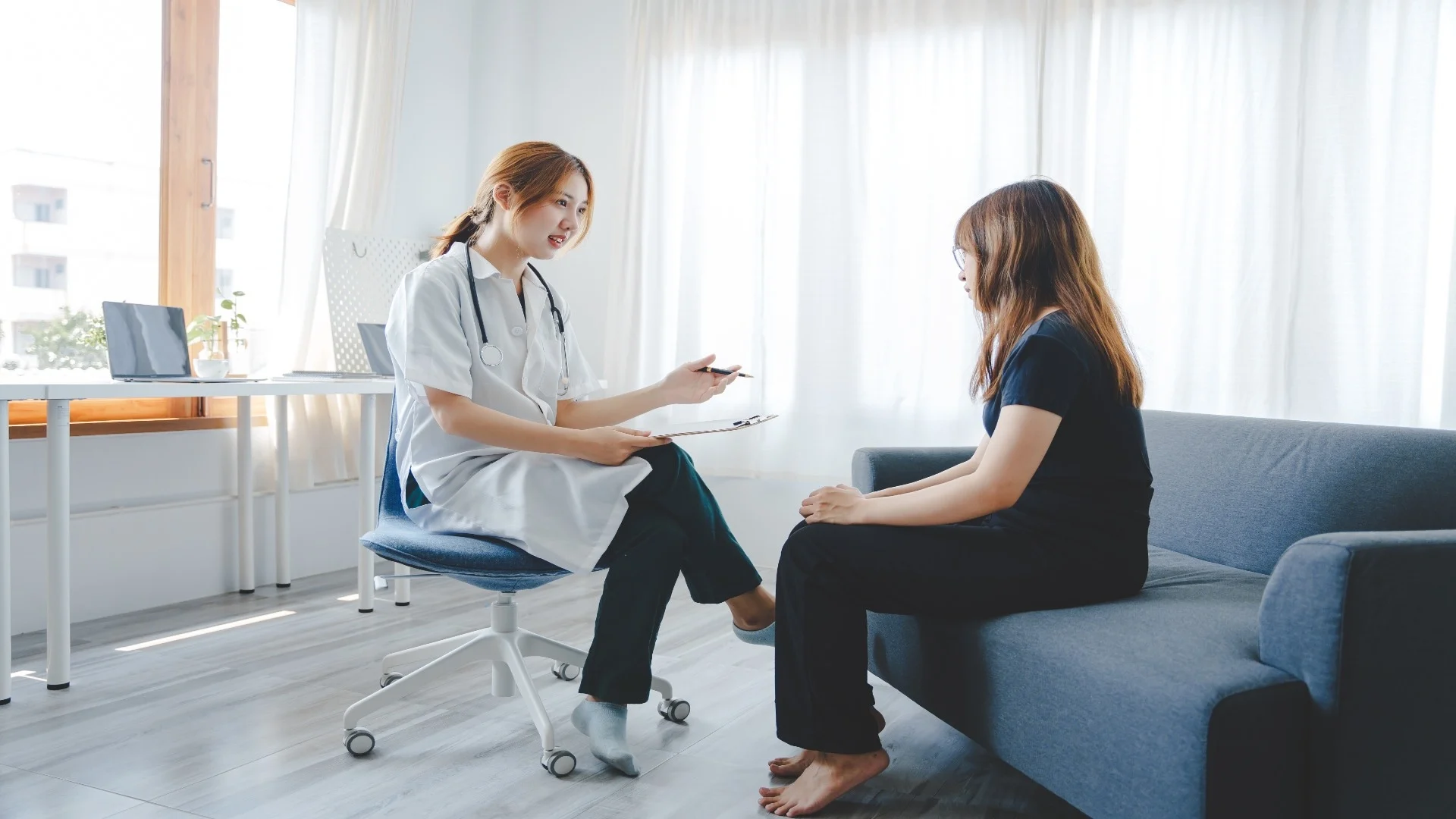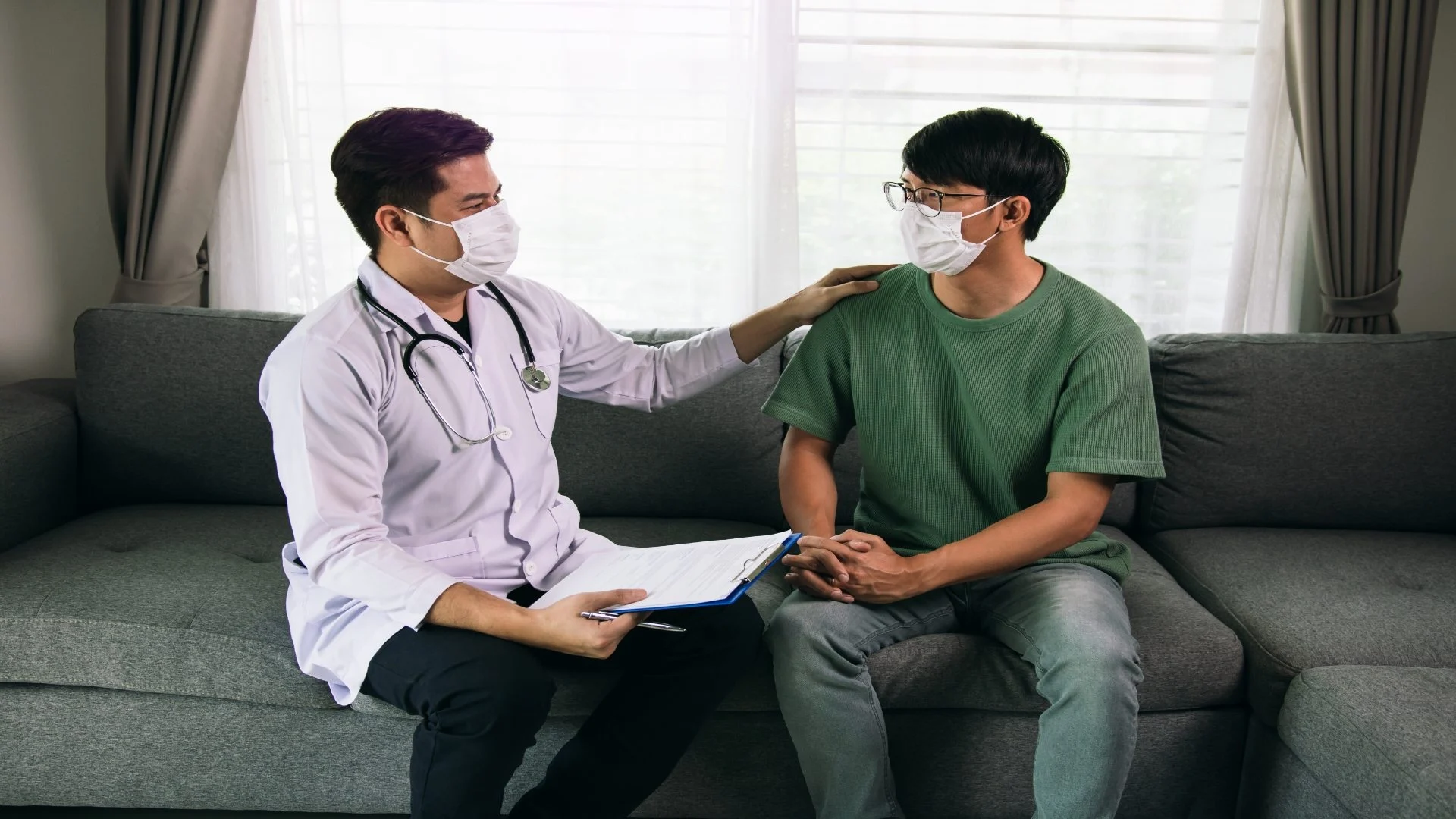Mental Health
Pornography and Depression

Struggling with pornography and depression? Learn how the two are connected, their impact on mental health, and explore effective paths toward healing and recovery.
Does watching pornography cause depression?
While it may not directly cause depression, repeated pornography use can contribute to it. Guilt, isolation, and changes in brain chemistry can amplify emotional distress, mainly when porn is used as an unhealthy coping strategy for deeper emotional pain.
Why do I feel worse after using pornography?
Pornography temporarily spikes dopamine, the brain's feel-good chemical. But overuse can dull the brain’s response to pleasure, leading to emotional lows, fatigue, and dissatisfaction. These mood crashes often intensify feelings of anxiety, shame, and depression over time.
How do I know if porn use is a problem?
If your porn use feels compulsive, interferes with daily responsibilities, affects your relationships, or leaves you feeling ashamed or empty afterward, it may be a problem. These signs reflect emotional or behavioral distress that may benefit from professional support.
Is pornography addiction a real addiction?
Porn addiction is often described as compulsive sexual behavior and is recognized by the World Health Organization under ICD-11. It shares traits with other behavioral addictions, like cravings and loss of control, even if it's not officially in the DSM-5.
What treatments work best for pornography and depression?
Effective treatment involves a combination of therapy, medical care, and lifestyle modifications. CBT, group counseling, trauma therapy, and psychiatric support work well together to address both pornography use and underlying depression holistically and sustainably.
You might find yourself turning to pornography to escape difficult emotions, only to feel more isolated, ashamed, or emotionally drained afterward. Over time, this cycle can quietly take a toll on your mental health, deepening feelings of sadness and hopelessness.
The connection between pornography and depression is real, and it can affect your relationships, self-esteem, and daily life in ways you might not expect. But there is hope. With the proper understanding and support, it’s possible to break free from this pattern, heal emotionally, and begin building a healthier, more fulfilling life.
How Pornography and Depression Interact

Many people don’t immediately see the connection between pornography and depression, but the link is more common than you might think.
Pornography can serve as a form of temporary escape from difficult emotions like sadness, stress, anxiety, or loneliness.
However, over time, this coping mechanism may develop into a compulsive habit that worsens mental health instead of relieving it.
The Emotional Toll of Repetition
When someone frequently turns to pornography to self-soothe, they may start to experience a drop in self-esteem, feelings of guilt, and a sense of emotional detachment from others.
The short-term dopamine boost from pornography use may feel good momentarily, but it often leads to a crash that reinforces feelings of emptiness or despair.
This repeated cycle can leave you feeling trapped and disconnected from your emotions, deepening depressive symptoms.
Escalation and Isolation
If your use of pornography starts interfering with your responsibilities, relationships, or ability to enjoy everyday life, it can become an added source of stress, shame, or secrecy.
Depression can both feed into and result from these consequences, creating a loop that’s difficult to break without help.
Signs You’re Caught in the Cycle
Recognizing the signs of being caught in the cycle of pornography use and depression is the first step toward healing.
You might notice emotional symptoms such as increased sadness, hopelessness, irritability, or numbness. Often, individuals feel ashamed or embarrassed about their porn use, which makes it even harder to talk about or seek help for.
Compulsivity and Escalation
Behaviorally, you may find it difficult to stop watching pornography even when you want to. You might spend more time than intended, watch in secret, or feel anxious and restless when not viewing it.
Some people notice that they need increasingly extreme content over time to achieve the same effect, a sign of developing tolerance.
Impact on Relationships and Daily Life
Porn use can also impact your relationships. You may feel less connected to your partner, struggle with sexual intimacy, or avoid social situations due to shame or isolation.
Physical symptoms, such as sleep disturbances or a lack of motivation, often accompany these conditions. These warning signs reflect a pattern that might require professional support to interrupt.

We’re Here To Help You Find Your Way
Would you like more information about mental health or drug addiction? Reach out today.
What the Research Shows
Research increasingly supports the link between pornography and depression. Several studies have found that individuals who report problematic porn use also experience higher rates of depressive symptoms, low self-worth, and anxiety.
One study found that those with compulsive sexual behavior, including problematic pornography use, had significantly higher depression scores than the general population.
Changes in Brain Chemistry
Neurologically, excessive porn use can change how the brain responds to pleasure. The brain's reward system, which relies on dopamine, may become less sensitive over time.
This means that everyday joys or accomplishments might no longer feel satisfying, a hallmark symptom of depression.
At the same time, more intense or frequent porn use is needed to achieve the same effect, reinforcing the cycle.
Vulnerability Across Demographics
Younger individuals, particularly teenagers and young adults, are often more vulnerable. With increased exposure and access through smartphones and tablets, problematic usage can start early and affect emotional development.
However, people of all ages and genders can be affected, and it’s important not to assume it’s only a young person’s issue.
Why Recovery Is Possible
The good news is that recovery is possible. You are not alone, and you are not beyond help. At The Edge Treatment Center, we’ve worked with many individuals who have felt overwhelmed by the combination of pornography use and depression.
With the proper guidance and support, they’ve been able to rebuild their emotional well-being and lead healthier lives.
Redefining Your Self-Worth

Recovery starts with understanding that neither your behavior nor your mental health defines who you are. By addressing both pornography use and depression simultaneously, we can help you break the cycle and create new patterns of coping, connection, and confidence.
A First Step Toward Healing
You don’t need to carry the burden in silence. Healing begins when you permit yourself to seek help. Whether you’re dealing with compulsive porn use, depression, or both, the path to wellness is within reach.

We’ll Lead You to New Heights
Do you have more questions about mental health or drug addiction? Reach out.
Our Personalized Treatment Approach
At The Edge Treatment Center, we believe in treating the whole person, not just the symptoms. That means developing a personalized treatment plan that addresses your specific experiences with pornography and depression.
We recognize that each person’s struggle is unique, and recovery should reflect that individuality. Instead of offering a one-size-fits-all solution, we provide care that aligns with your emotional, physical, and mental health goals.
Tailored Assessment and Interventions
Your journey begins with a comprehensive assessment conducted by our clinical team. We take the time to understand your mental health history, current challenges, patterns of behavior, and any underlying trauma or co-occurring disorders.
This profound insight enables us to create a treatment plan that is not only customized but also adapts as your needs evolve throughout your recovery.
Comprehensive Treatment Modalities
We draw from a variety of proven therapeutic approaches to ensure well-rounded care that supports your healing from multiple angles:
Cognitive Behavioral Therapy (CBT): We help you uncover and challenge negative thought patterns linked to pornography use and depression, replacing them with more constructive ways of thinking and responding.
Trauma-Informed Therapy: If past trauma is a factor, we provide a safe, nonjudgmental space to explore those experiences, promoting healing while minimizing re-traumatization.
Group Therapy: You’re not alone. Our supportive group environments enable you to connect with others who face similar struggles, reducing isolation and fostering a community of accountability and encouragement.
Psychiatric Support: When needed, our licensed psychiatric team may recommend and manage medications to help stabilize mood, improve sleep, or ease anxiety, always in coordination with your therapeutic progress.
Holistic Care: Your well-being includes your body, mind, and spirit. We offer mindfulness training, physical wellness guidance, and nutrition support to restore balance and promote long-term wellness.
Family Involvement: We recognize the importance of healthy support systems. When appropriate, we involve family members or close loved ones in your treatment to foster understanding, repair trust, and strengthen your recovery network.
Each step of your treatment is handled with compassion, confidentiality, and a deep commitment to helping you heal.
How to Begin with Us
If you’re reading this and see yourself in the experiences we’ve described, it might be time to take the next step. Reaching out can feel intimidating, but it’s also the most courageous thing you can do for yourself or someone you care about.
What to Expect
At The Edge Treatment Center, we make the process as easy and supportive as possible. When you contact us, we start with a no-pressure conversation to understand what you’re going through and how we can assist you.
From there, we provide a personalized plan of care tailored to your specific goals, comfort level, and long-term wellness needs.

We’re Here To Help You Find Your Way
Do you need advice about mental health or drug addiction? Reach out today.
Pornography and Depression: Taking Over Your Life? We Can Help

You don’t have to stay stuck in the cycle of shame, sadness, or isolation. The connection between pornography and depression is real, but so is the hope for recovery. At The Edge Treatment Center, we understand how deeply these issues can affect your life, and we’re here to help you heal.
With compassionate support and a personalized treatment plan, we’ll work with you to rebuild your emotional health and find lasting freedom. Reach out today—you deserve a life of connection, peace, and purpose.

We’re Here To Help You Find Your Way
If you or a loved one is struggling with addiction, there is hope. Our team can guide you on your journey to recovery. Call us today.
Written by
The Edge Treatment Center
Reviewed by
 Jeremy Arzt
Jeremy ArztChief Clinical Officer
Mental Health
August 28, 2025
